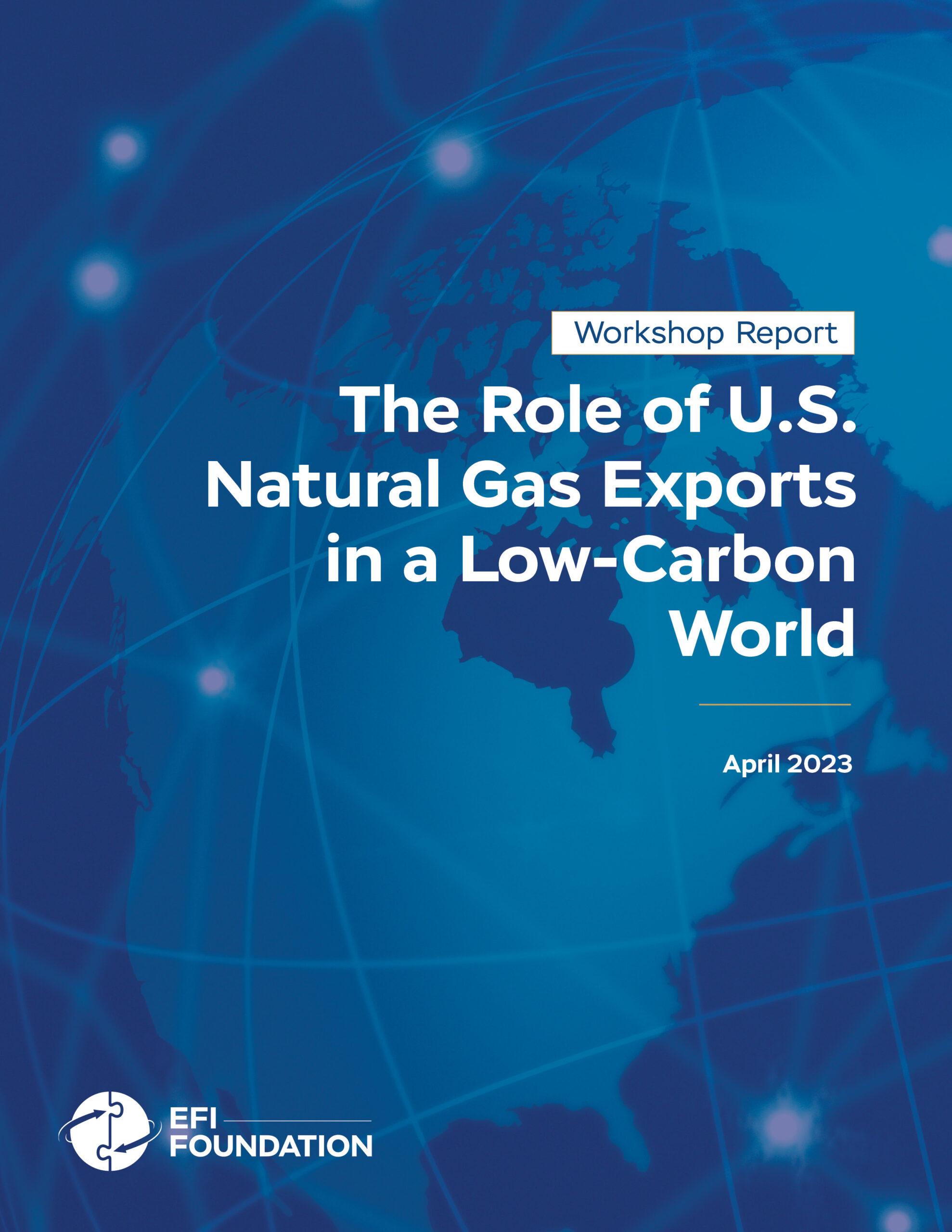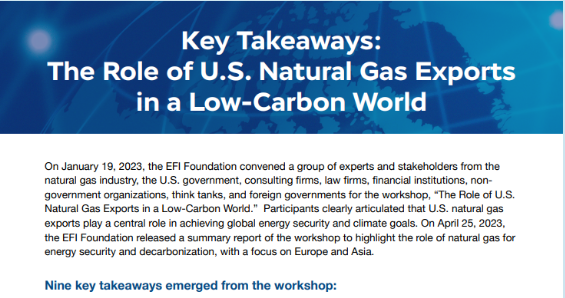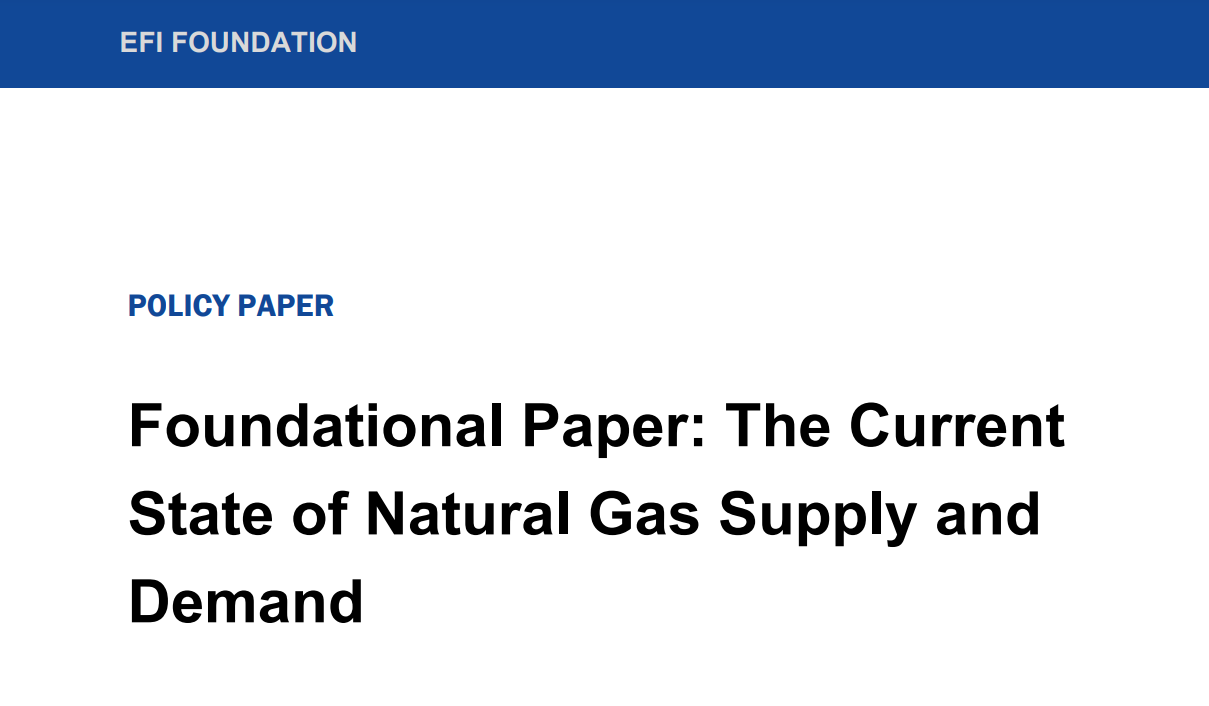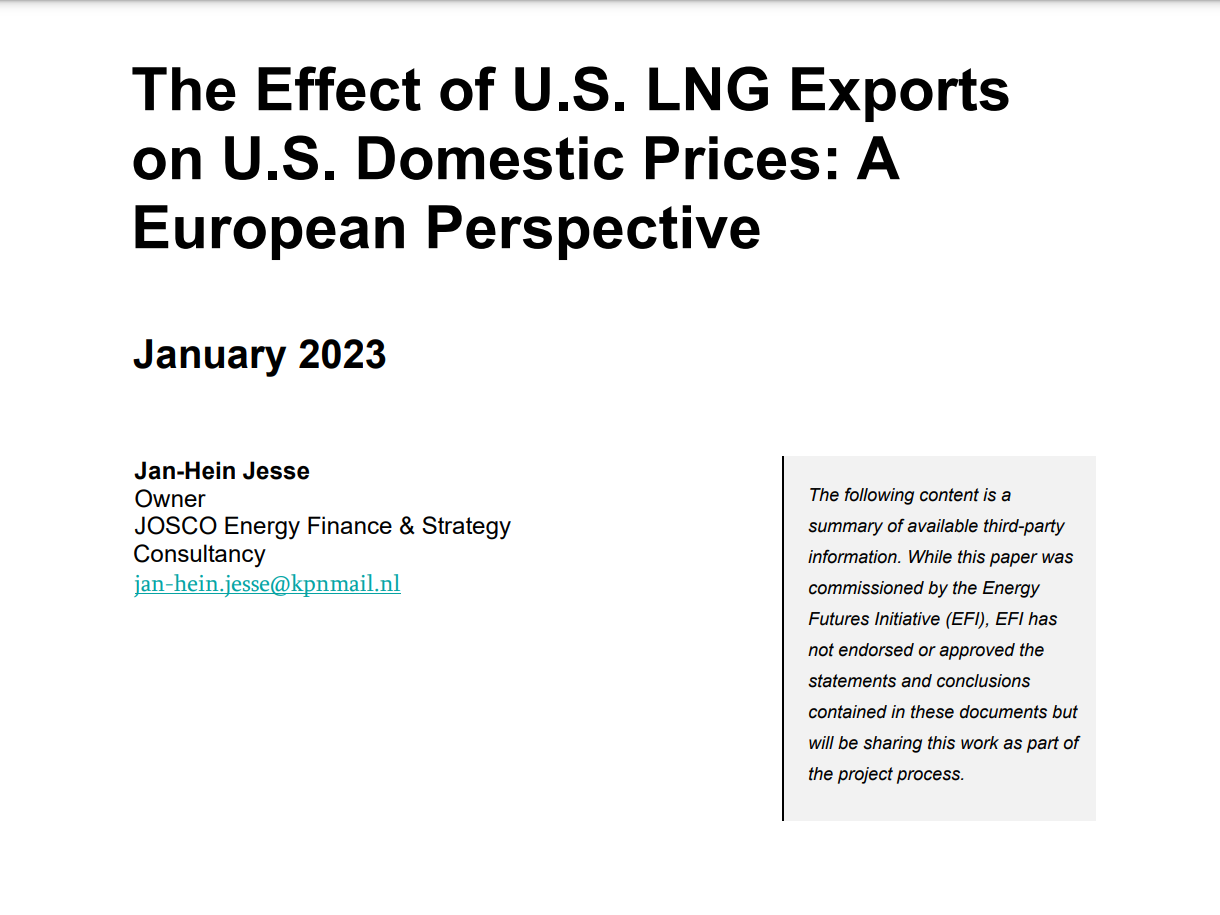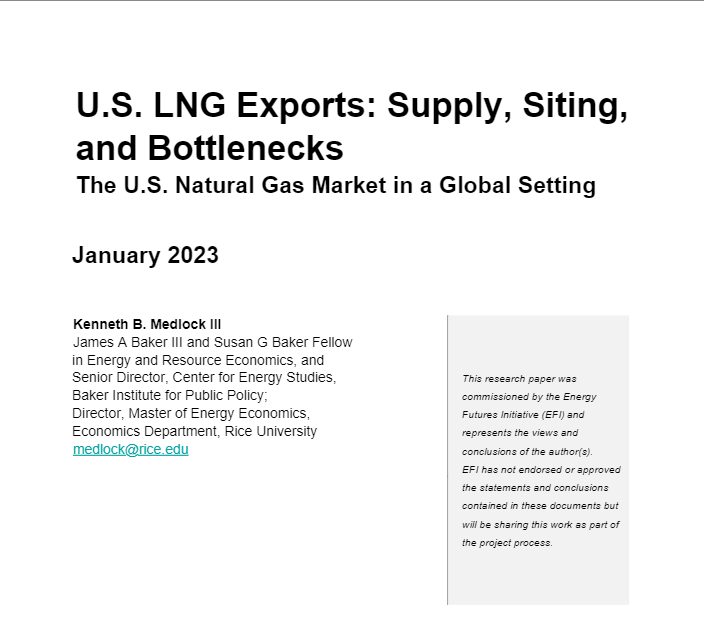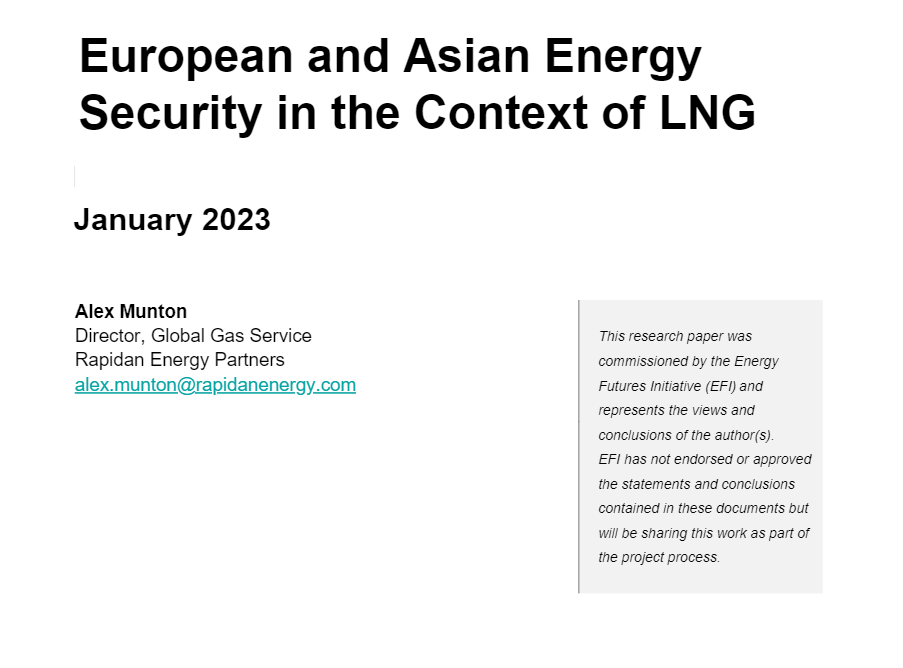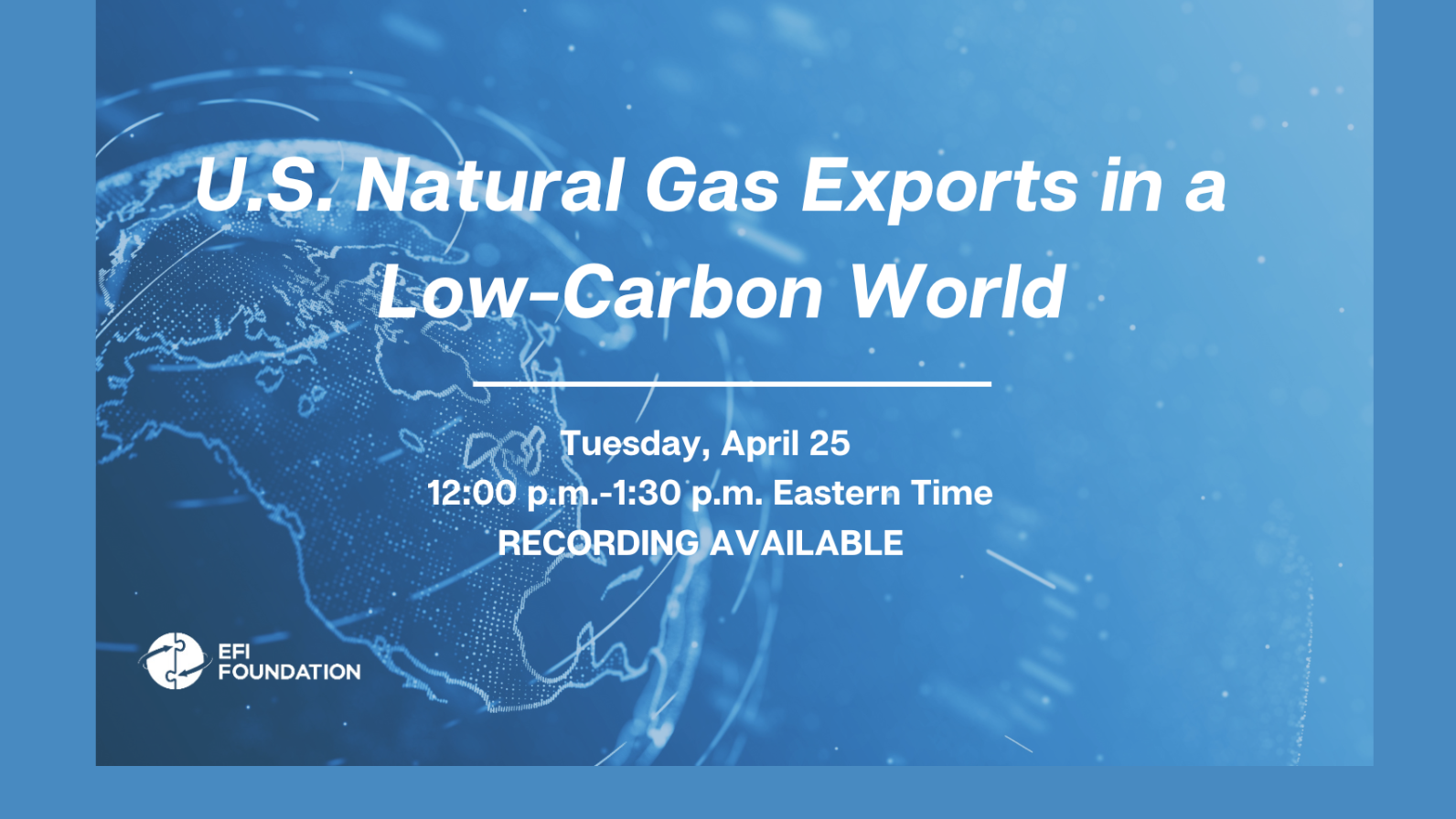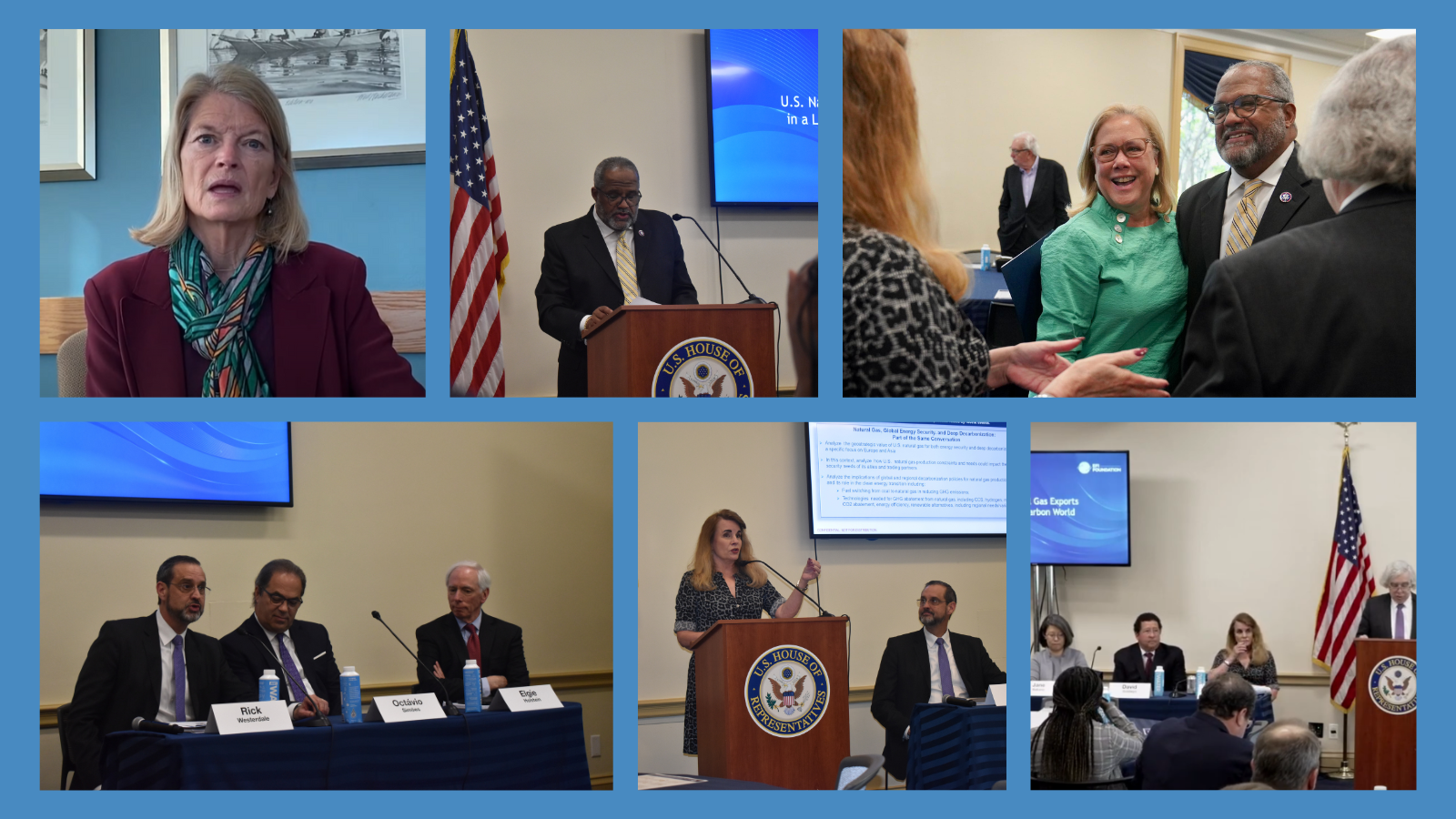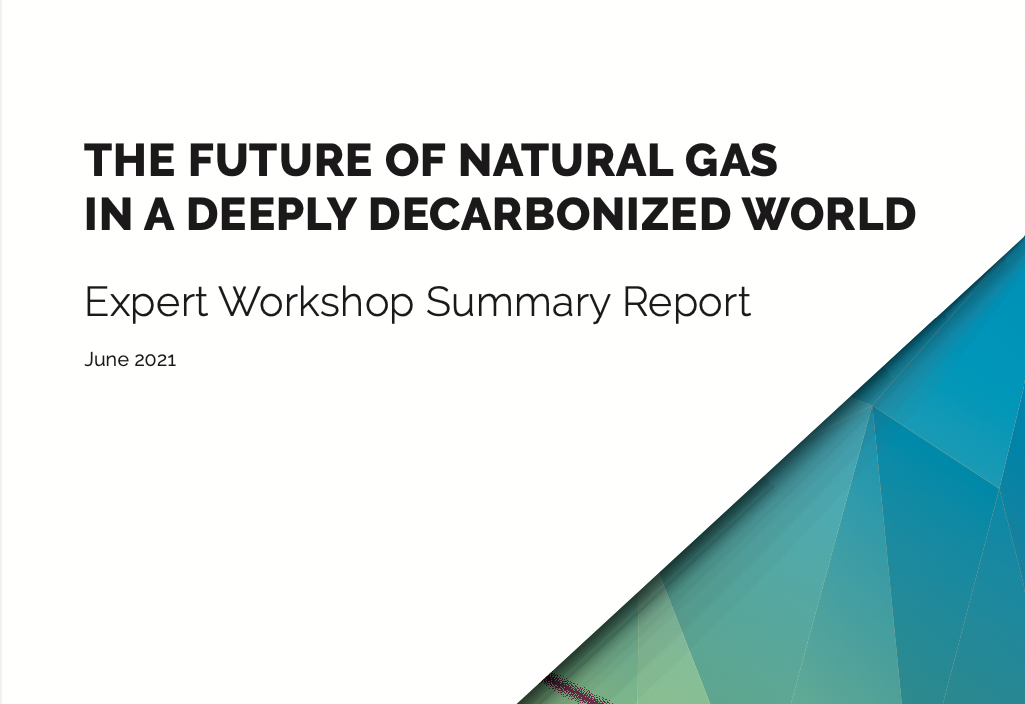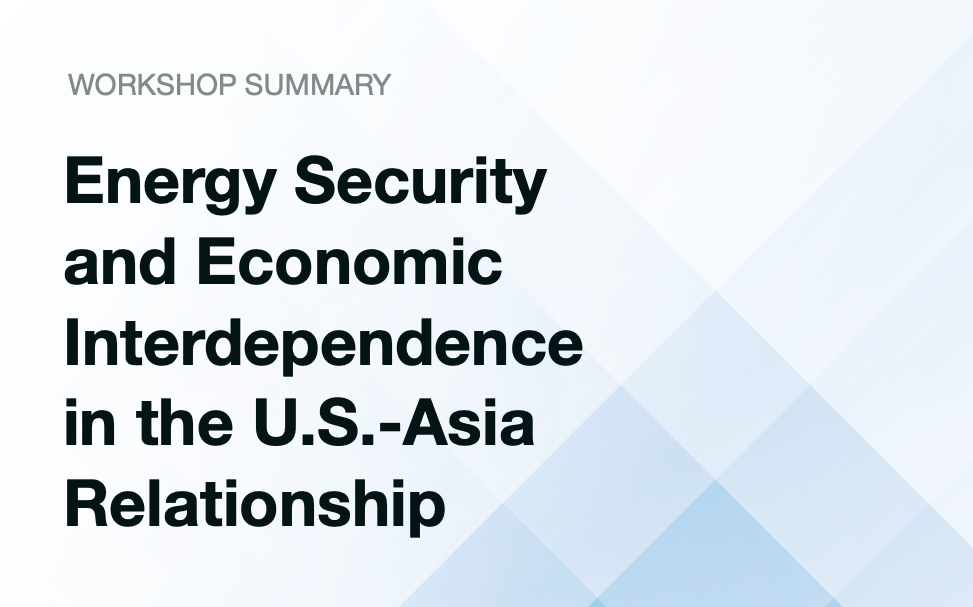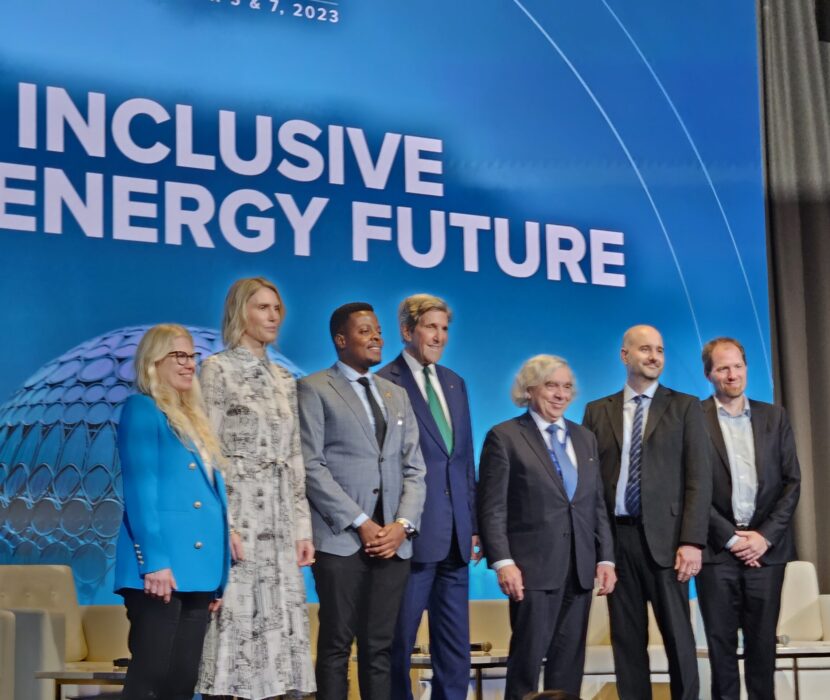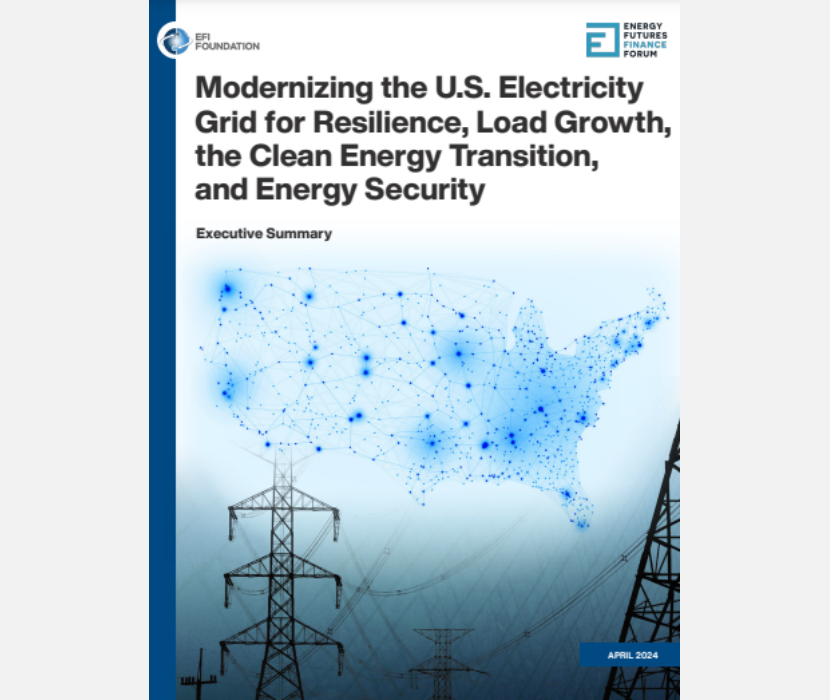The Role of U.S. Natural Gas Exports in a Low-Carbon World (April 2023) distills the findings of a workshop held by the EFI Foundation in Washington, D.C. on January 19, 2023. Seventy-eight senior executives and energy experts participated, including leaders in the natural gas industry, U.S. government, consulting firms, law firms, financial institutions, non-government organizations, think tanks, and foreign governments.
Participants clearly articulated that U.S. natural gas exports play a central role for achieving goals for global energy security, climate, economic development, and food security. The United States has provided energy in the form of liquefied natural gas to Europe following Russia’s invasion of Ukraine; there are, however, potential near- and long-term security and climate mitigation consequences to Asia and developing countries of increased U.S. natural gas exports to Europe in the face of its energy crisis.
Renewable energy technologies cannot currently provide the reliability, redundancy, resilience, affordability, and industrial requirements that countries need to meet their near-term energy security objectives. Natural gas can promote energy security and the transition to a low-carbon economy by serving as a cleaner alternative to coal and oil. While wealthier countries are buying more U.S. natural gas and committing to longer-term contracts, developing countries struggle to obtain reliable, affordable energy to decarbonize their economies. As the number one natural gas supplier and a global leader in climate change mitigation, the United States is at a position of continued influence.
The U.S. liquefied natural gas industry has many global opportunities for growth. To fully realize these opportunities, the industry must overcome regulatory bottlenecks around permitting infrastructure (which affect financing and timelines) and build diverse coalitions that meet the needs of multiple stakeholders. The industry should also address environmental concerns and reducing greenhouse gas emissions (including methane emissions) across the value chain, which will help create a social license to operate, and create more supply by eliminating losses that occur from venting and flaring.
If the United States can overcome these challenges, it can demonstrate its leadership and provide energy for its allies and trading partners in Europe and Asia. Though Europe may be the primary consumer in the short term, the U.S. natural gas industry should continue to engage with and provide affordable and reliable gas to both the developed and developing countries in Asia, which should be long-term consumers of natural gas for their own energy security and decarbonization goals.
Nine takeaways (below) emerged from the workshop, five of which apply to natural gas challenges in the United States (including tackling methane leakage and permitting new projects), and two of which bridge domestic and international issues by focusing on the interconnectivity of global natural gas markets and the United States’ role as the preeminent global supplier. The remaining two takeaways focus on Europe’s and Asia’s natural gas needs.
- Climate goals and energy security—both affordability and availability of supply—need to be addressed in the same conversation.
- Natural gas will continue to be crucial for fulfilling global goals for decarbonization, energy security, and food security.
- The deployment of current technologies and additional regulations are needed for the natural gas industry to address its greenhouse gas emissions, including methane.
- Federal, state, and local government permitting issues are a major challenge to meeting deep decarbonization and energy security goals.
- The timelines or financing and building energy infrastructure may not be sufficient to meet global energy security and decarbonization needs.
- Natural gas prices in the United States are affected by the dynamics of global energy markets, as well as domestic politics and concerns.
- The United States must decide what role to play in supplying natural gas and enabling global decarbonization goals.
- Although Europe needs gas in the near term, it may not be a long-term market for U.S. exports.
- In Asia, developing nations are primarily concerned about the affordability of natural gas, while developed nations worry more about the reliability of supply.
This workshop and report build off the Energy Futures Initiative’s (EFI’s) ongoing analytical work on global natural gas markets. In June 2021, EFI published, “The Future of Natural Gas in a Deeply Decarbonized World,” which summarized findings from eight regional workshops. In March 2022, EFI published, “Energy Security and Economic Interdependence in the U.S.-Asia Relationship,” a workshop summary report that examined how geopolitics, supply challenges, and decarbonization commitments affect U.S. natural gas exports to Asia. This latest workshop report will guide EFI’s future natural gas research and analysis, with an emphasis on Europe and Asia.
Supplemental Material
Related Content
(Share this post with others.)


